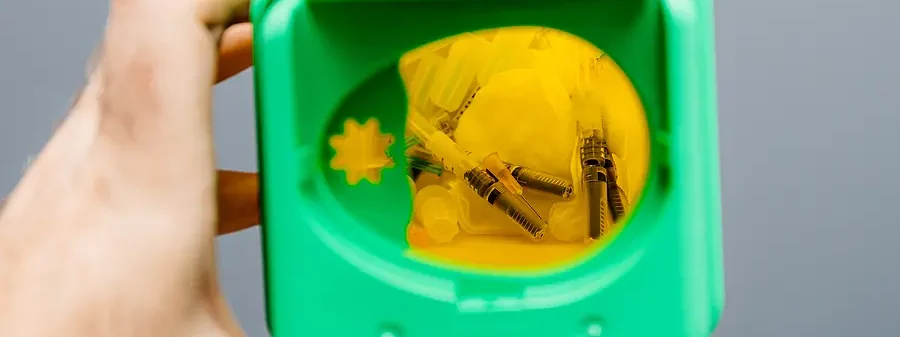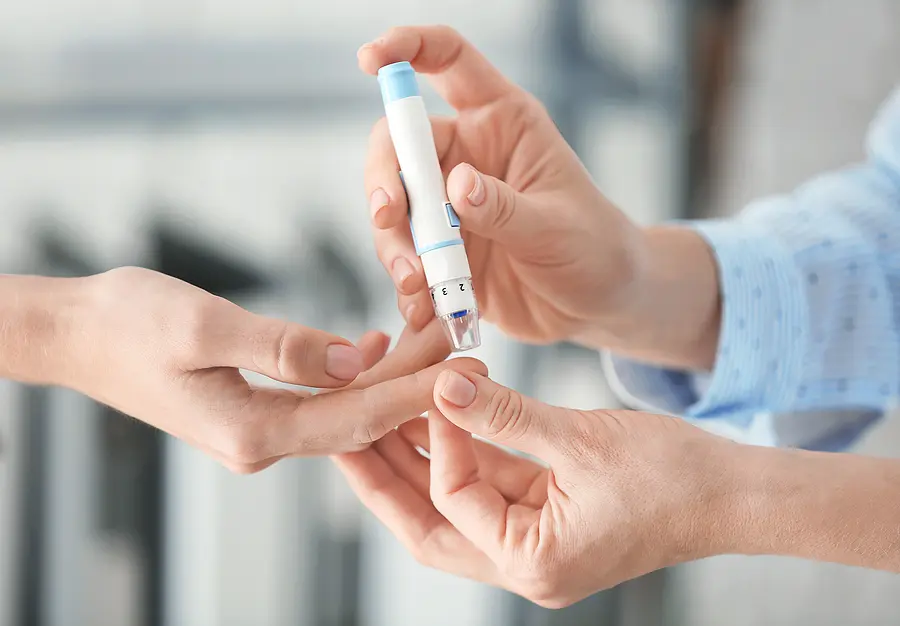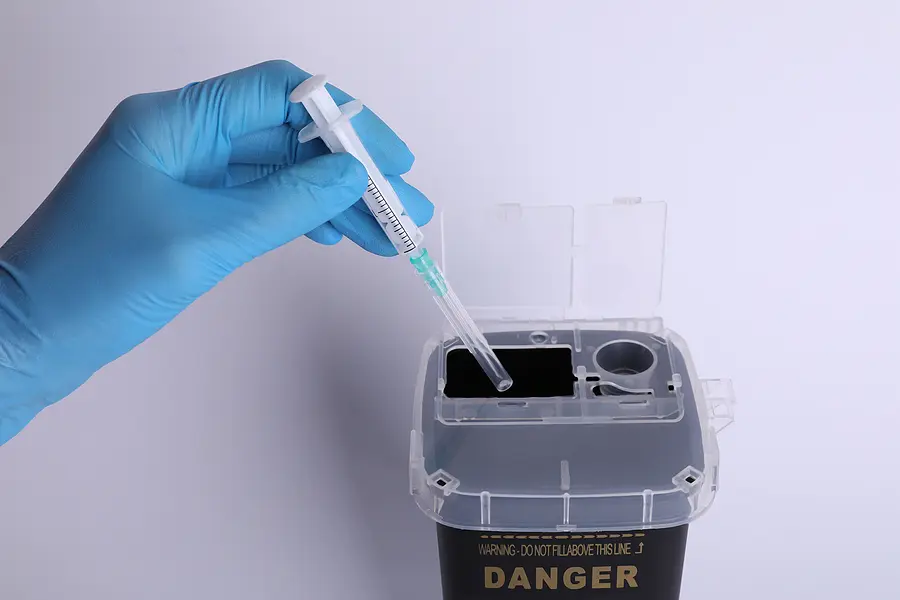What Goes in a Sharps Container?

Medical conditions requiring regular injections or blood testing are increasingly common, and with them comes the responsibility of proper sharps disposal. Sharps, such as needles and lancets, pose a significant risk if not handled and disposed of correctly. In fact, the National Library of Medicine estimates that 385,000 sharps injuries occur each year with hospital employees alone. In this blog post, we’ll explore what goes into a sharps container and why proper disposal is crucial for the safety of individuals and the community.
What Goes in a Sharps Container?
Needles and Syringes:
The most obvious occupants of a sharps container are needles and syringes. Individuals managing chronic conditions like diabetes or undergoing specific medical treatments commonly use these. Proper disposal of these items prevents accidental needlestick injuries and reduces the risk of transmitting infections.

Lancets and Blood Testing Supplies:
People with diabetes often use lancets to monitor their blood glucose levels. Used lancets and other blood testing supplies, such as test strips, should also be placed in a sharps container. These items may carry bloodborne pathogens that can be harmful if not handled correctly.
Infusion Sets and Auto-Injectors:
Individuals with conditions requiring regular infusions or self-administered medications may use infusion sets and auto-injectors. You should dispose of these devices should be carefully in a sharps container to prevent accidental exposures.
Scalpels and Razor Blades:
In medical settings, scalpels and razor blades are commonly used for various procedures. Proper disposal of these sharp instruments is crucial to protect healthcare workers and the general public from accidental injuries.
Broken Glass and Other Sharp Objects:
Sometimes, medical procedures involve glass items like ampules or vials, which can break during use. Broken glass and other sharp objects related to medical procedures should also be placed in a sharps container for safe disposal.
Why Proper Sharps Disposal Matters:

Preventing Accidental Injuries:
Discarded needles and other sharps in regular trash increase the risk of accidental needlestick injuries. These injuries can transmit infections such as HIV, hepatitis B, and hepatitis C. Safely disposing of your sharps prevents injuries and the spread of these diseases.
Protecting the Environment:
Sharps in the regular waste stream can pose environmental hazards. Examples include the spread of infectious diseases and excess plastic waste. Additionally, improper incineration practices of sharps release hazardous emissions into the air. Disposing of sharps properly ensures that these items are treated and managed in a way that minimizes environmental impact.
Compliance with Regulations:
Many states and cities have specific regulations regarding the disposal of medical sharps. Following these regulations not only protects individuals and the environment but also ensures legal compliance.
Properly Dispose of Your Sharps Today!
If you or someone you know requires regular injections or blood testing, it’s essential to use a designated sharps container for safe disposal. By doing so, you contribute to a safer environment and protect yourself, your loved ones, and the community from the risks associated with improper sharps disposal.
Invest in a quality sharps container and commit to safeguarding yourself and others. Contact Medical Waste Pros at (888) 755-6370 or fill out the form to get safe sharps disposal services today.










